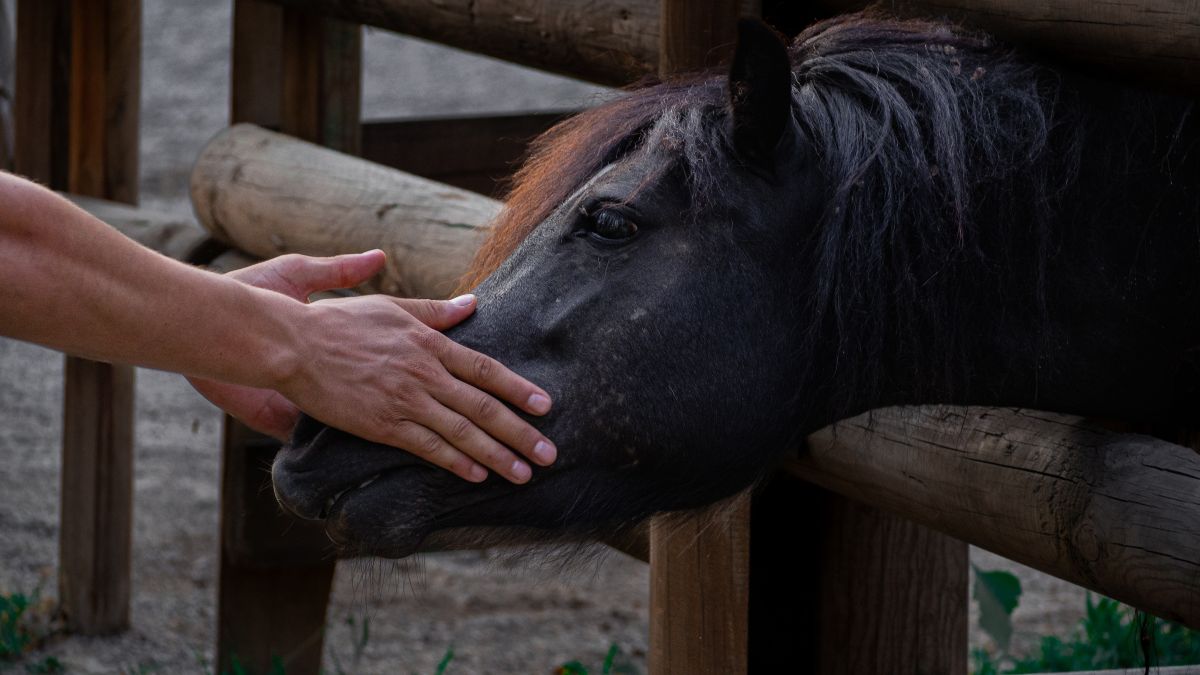Can horses throw up?
It’s a common question among horse owners, as most are familiar with the sound and sight of other animals vomiting. However, while vomiting is a natural occurrence for many animals, horses are biologically unable to vomit.
This article will discuss the digestive system of horses, why they cannot throw up, and the potential health risks associated with this inability.
It will also cover common digestive disorders and steps to maintain a healthy digestive system for horses.
Key Takeaways
- Horses have a unique digestive system that prevents vomiting.
- Horses may appear to vomit, but they usually just spit out feed or water.
- Inability to vomit protects horses from ingesting foreign objects.
- Horses rely on other methods to manage indigestion.
Understanding Horse Digestive System
The digestive system of horses is complex and requires a thorough understanding to provide appropriate care. Horses are herbivores, adapted to consume a forage-based diet by evolution. Horses are also hindgut fermentors, meaning the majority of digestion occurs in the cecum and large intestine. This requires careful management of feed and feeding habits to ensure proper digestion.
Stress levels can also hurt the digestive system, leading to gastric ulcers. The horse’s diet needs careful management to meet nutritional requirements and prevent digestive problems.
Understanding the digestive system of horses is essential for providing proper care and reducing the risk of health problems.
The Biological Impossibility of Horses Vomiting
It is biologically impossible for equines to regurgitate. This is due to the unique construction of their digestive system and the delicate balance of microbial flora in their gastrointestinal health.
Horses have an unusually long digestive tract, making it difficult to vomit, even if they suffer gastric ulcers. Furthermore, horses’ digestive system is sensitive to changes in their feeding habits, and exposure to any imbalance can result in serious health complications.
Although horses may appear to vomit, it is usually just the result of them spitting out their feed or water due to an upset stomach. Therefore, it is essential to maintain the health of their digestive system by providing them with balanced diets and regular exercise.
Reasons Why Horses Can’t Throw Up
Horses are unable to throw up due to the unique construction of their digestive systems and the delicate balance of microbial flora in their gastrointestinal health. Their stomach anatomy does not permit regurgitation of food, and their diet does not lend itself to vomiting either.
Horses are grazers, and their diet consists of small amounts of food spread throughout the day, so they must have access to forage at all times. The digestive enzymes in a horse’s stomach are not strong enough to break down food in the same way as humans, which means that foreign objects are less likely to be ingested.
Additionally, horses are more prone to gastric ulcers than other animals, which vomiting can exacerbate. Therefore, to protect their health, horses cannot throw up.
Potential Health Risks Linked to Horses Not Throwing Up
Without the ability to vomit, horses are exposed to potential health risks associated with accumulating foreign objects and the exacerbation of gastric ulcers. Foreign objects ingested by the horse can result in intestinal blockages, which can cause various health issues.
Additionally, dietary changes can increase the risk of gastrointestinal stress, with colic symptoms potentially developing. Without the ability to throw up, horses cannot expel ingested foreign objects, which can lead to an accumulation of these objects in the digestive tract.
This accumulation can lead to gastric irritation and decreased digestive enzymes, potentially resulting in further health concerns. Therefore, it is crucial to be aware of the potential health risks linked to horses’ inability to throw up.
How Horses Deal With Indigestion
When horses are unable to vomit in order to expel foreign objects, they must rely on other methods to manage indigestion. Proper forage selection and dietary balance are essential for maintaining gastric acidity and digestive enzyme levels. Stress management can also be beneficial as it can help to reduce the chances of digestive issues. While horses cannot vomit, they can still expel foreign objects with the help of other methods.
The horse’s gastrointestinal system works hard to break down food particles, but indigestion can occur when the digestive system is overburdened. In such cases, it is important to ensure that the horse has access to the proper forage and a balanced diet to help support the digestive system. Managing stress levels is also important, as stress can increase the chance of digestive problems.
Ultimately, proper forage selection, dietary balance, and stress management are key components in ensuring that horses can manage indigestion without the ability to vomit. By applying these principles, horses can still expel foreign objects and ensure their digestive system functions properly.
Common Horse Digestive Disorders and Their Symptoms
Common digestive disorders in horses can cause various symptoms, ranging from colic to weight loss. Feeding habits, stressors, and inadequate worm control can all contribute to digestive issues in horses.
Gastric ulcers are a common digestive disorder and can be caused by a variety of things, such as stress, changes in diet, and lack of exercise. Symptoms of gastric ulcers include loss of appetite, colic, weight loss, and decreased performance.
Colic is another common digestive disorder caused by the same issues as gastric ulcers. Symptoms of colic can include pawing at the ground, rolling, and a reluctance to move. Diagnosis of colic can be done with an abdominal exam, as well as a rectal exam.
Horse owners must pay attention to their horses’ eating habits, monitor their stress, and ensure they get adequate worm control. Taking care of these issues can help prevent digestive disorders in horses.
Steps to Maintain a Healthy Digestive System in Horses
Maintaining a healthy digestive system in horses is vital for their health and well-being. Horses’ specific nutritional needs must be met and monitored depending on their age, breed, and activity level.
Feeding habits should be consistent, avoiding sudden changes. Stomach acid levels can be monitored to detect any problems that may arise. Gastric ulcers can be treated with medication, and prevention is key, which includes controlling the amount of grain and hay in the diet.
Exercise routine should also be consistent and avoid sudden changes in intensity. Proper nutrition, careful feeding habits, and a regular exercise routine are all essential to maintaining a healthy digestive system in horses.
Veterinary Care for Horses With Digestive Issues
Veterinary care is essential for horses experiencing digestive issues, as it can help identify any underlying causes and provide the most effective treatment. The vet can discuss feeding tips, assess the horse’s diet, and recommend digestive supplements. Stomach ulcers, gas colic, or other digestive problems can be diagnosed and treated with the help of a vet.
In some cases, horses may need to be put on a special diet to support their digestive health. Vets can also provide recommendations on how to reduce stress and provide preventative care to avoid digestive issues in the future.
Proper veterinary care can help keep horses healthy and comfortable and can help them to lead a long and happy life.
Frequently Asked Questions
How Often Should I Feed My Horse?
A key factor in keeping your horse healthy is ensuring their diet is balanced and meets their needs. To ensure your horse is healthy, monitoring their grazing habits, hay intake, and dietary balance is important. Horses should be fed 2-3 times a day and have access to a continual supply of fresh hay. Depending on your horse’s physical activity, you may need to adjust the amount of feed you provide them.
A horse named Max had digestive issues until his owner changed his feeding habits and incorporated more hay into his diet. It is also important to ensure your horse gets all the vitamins and minerals they need to support their digestive health. Following the guidelines of a balanced diet and monitoring your horse’s eating habits will help keep your horse healthy.
What Are the Signs of an Unhealthy Horse Digestive System?
Preventative care is key when it comes to maintaining the health of a horse’s digestive system. This includes selecting a balanced diet for the horse and controlling hay intake. Providing digestive enzymes and maintaining a stress management program can also be beneficial.
To recognize the signs of an unhealthy digestive system, look for changes in the horse’s appetite, weight, water intake, and feces. Other symptoms include increased gas, bloating, abdominal discomfort, and blood or mucus in the manure.
Taking the time to provide adequate preventative care can help ensure your horse’s digestive system remains healthy.
Are There Any Natural Remedies for Horse Digestive Issues?
When it comes to treating horse digestive issues, several natural remedies can be employed. Avoiding toxins, such as plants that may be poisonous to horses, is essential.
Treating colic through dietary changes, maintaining hydration, and preventing parasites are also important. Proper exercise and socialization with other horses can help to reduce stress levels. Stress management is also crucial, as stress can cause digestive issues in horses.
In addition, regular deworming and good dental care can help to keep the horse’s digestive system in good health.
Is It Safe to Give My Horse Human Food?
When considering feeding guidelines for horses, providing them with human food is generally not recommended. Equine nutrition should be carefully balanced and provide enough variety of hay and hay alternatives to meet their dietary needs.
Additionally, human food can be difficult for horses to digest and may increase the risk of stomach ulcers or colic. It is important to consult with a veterinarian or equine nutritionist to ensure that horses receive the most appropriate diet for their needs.
Following proper feeding guidelines and other colic prevention strategies can help keep horses healthy and strong.
Are There Any Special Considerations for Senior Horses With Digestive Issues?
Regarding senior horses with digestive issues, it is crucial to consider several factors.
Dietary balance is essential for senior horses, as their nutritional needs may differ from those of younger horses. Additionally, weight loss may be a sign of digestive issues, and stress levels can affect digestion.
Mineral deficiencies can also lead to digestive issues, so it is important to supplement them in the horse’s diet.
Conclusion
Horses are unique in that they cannot vomit due to their anatomy and physiology, which can lead to potential health risks. It is crucial to ensure that horses have a balanced diet, regular exercise, and veterinary check-ups to help maintain a healthy digestive system.
However, even with the best care, horses can still suffer from digestive disorders, and it is important to be aware of the various symptoms and seek veterinary assistance if needed. Despite the inability of horses to vomit, owners can still take proactive steps to ensure their horse’s health and well-being.

